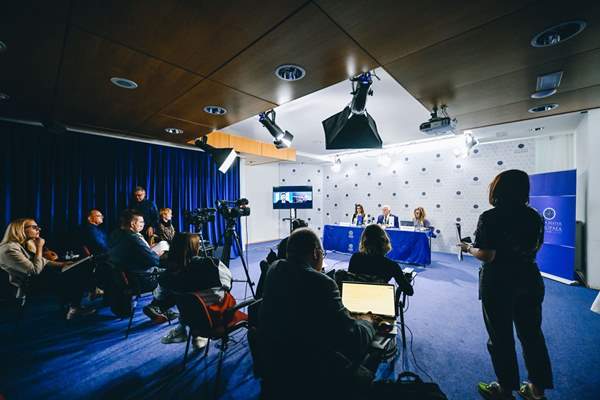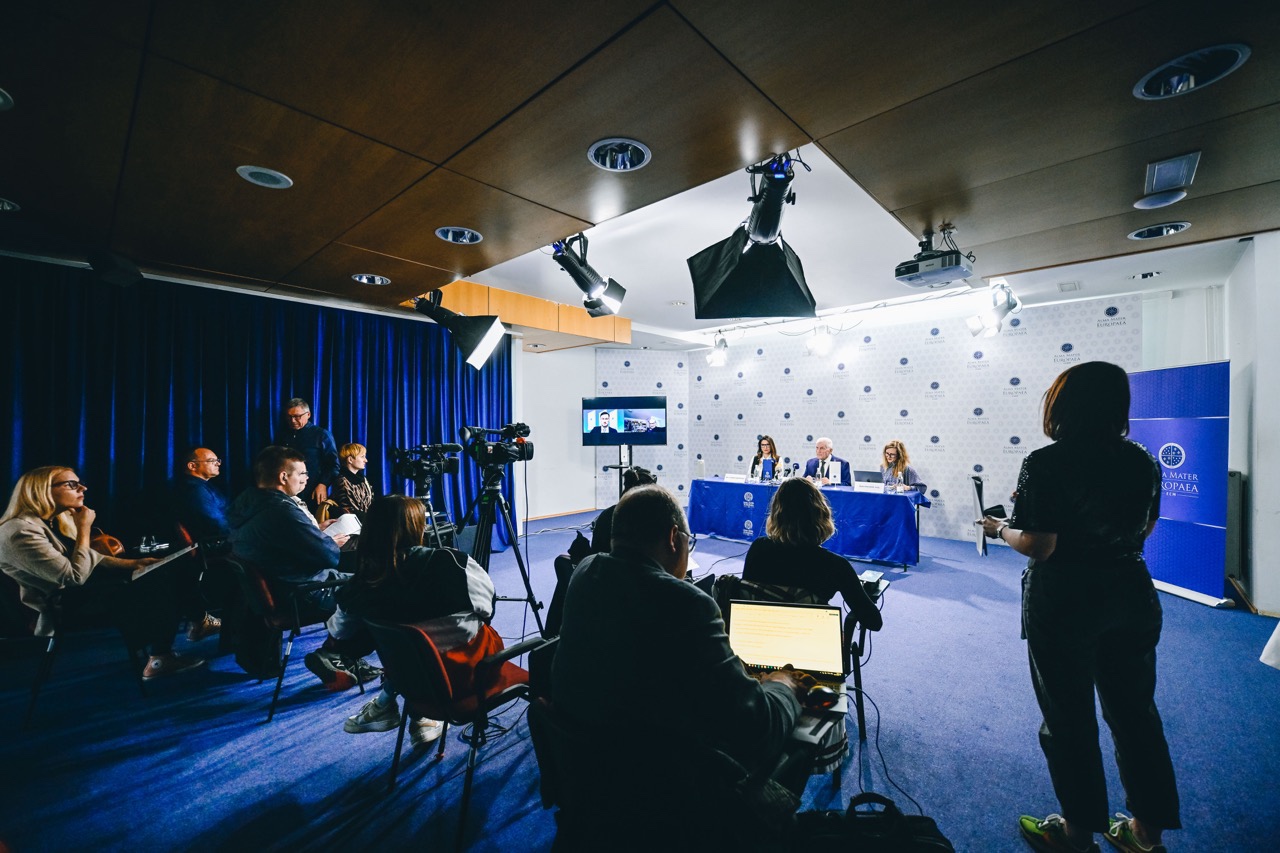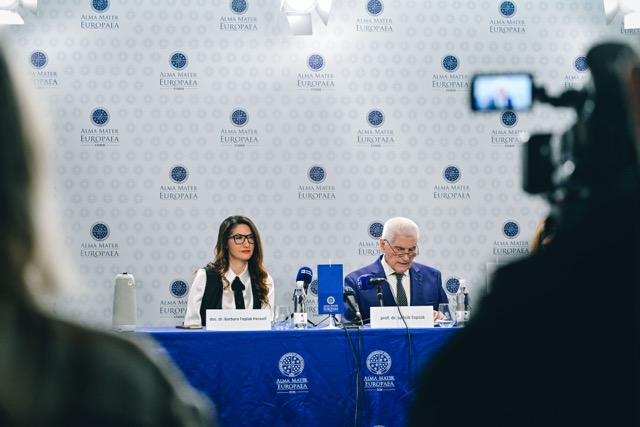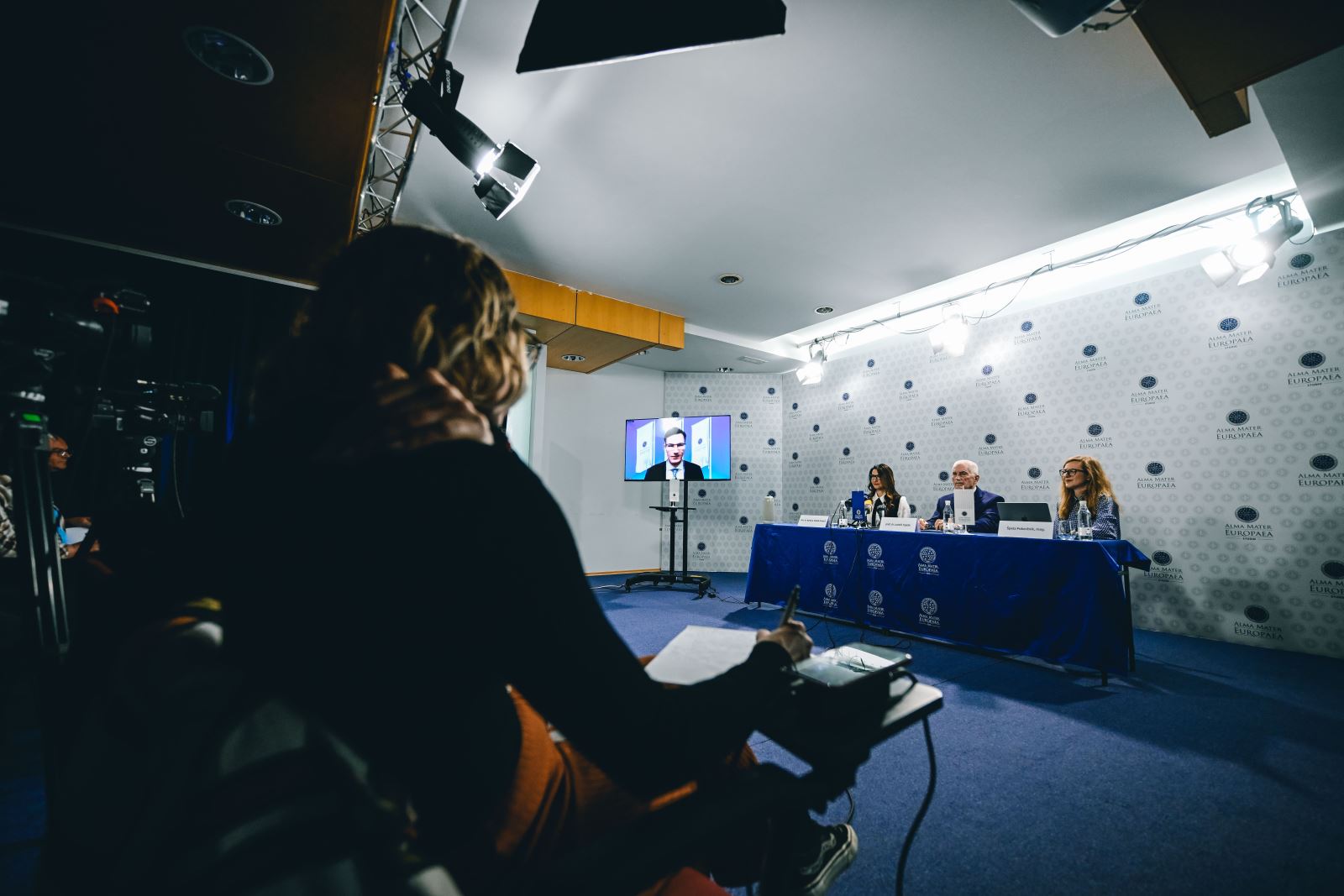
2000 students, 30 countries, 25 study programs, one university

National Agency for Quality in Higher Education (NAKVIS) confirmed the accreditation of Alma Mater Europaea as a full university.
(March 21, 2024) "Our longstanding efforts to officially stand alongside other globally recognized educational institutions as a university have come to fruition. By becoming a university, Alma Mater's position in the Slovenian and international community has been solidified, demonstrating the responsibility of teachers and students in meeting the standards and expectations regarding the quality of work, personnel, and organization," Professor Dr. Ludvik Toplak, the newly appointed Rector of Alma Mater University.
"Our mission is to develop new programs that are in demand and complementary to existing universities and to produce high-quality personnel competitive in both the domestic and European markets. Alma Mater has set its sights on becoming a center of excellence for Slovenia and the broader Central European region. We will respond to the economy's and public services' needs based on quality, relevance, and rationalization principles," added Dr. Ludvik Toplak.
The university status of Alma Mater enables its inclusion in specific international associations, membership in which is conditioned by membership in the national rector's conference.

The expert team that prepared the report was led by an experienced specialist in the higher education system, Professor Dr. Barbara Toplak Perovič: "Studying at Alma Mater Europaea has always been a guarantee of quality, recognized by both students and employers. We are pleased that Alma Mater has also gained recognition from the scientific, academic, and professional communities. A university must demonstrate exceptional quality in education, scientific research, and related achievements. Our work's success reflects an annual growth rate of at least 5-10% in the number of students, teachers, researchers, and all other indicators."
"By becoming a full university, Alma Mater has increased the possibility of high-quality and rational internationalization, capable of conveying the achievements of Slovenian science to the world and keeping pace with and building upon the achievements of global centers of knowledge and culture, as a true European university," added Professor Dr. Jurij Toplak, who will oversee international collaboration.

Sincere congratulations, enthusiasm, encouragement, and best wishes for successful cooperation in the future were conveyed to Alma Mater Europaea University by the Honorary President of the European Academy of Sciences and Arts from Salzburg, Prof. Dr. Felix Unger.

The university is an autonomous scientific, research, artistic, and educational institution with a special status. Accreditation ensures that the institution meets specific criteria regarding faculty qualifications, curriculum, student services, and general academic outcomes. It provides the highest quality in developing science, expertise, and arts. It has accredited study programs at all three levels up to a doctorate in at least four scientific research disciplines according to the Frascati classification and at least five educational fields according to the KLASIUS classification, including the art academy.
The university's bodies include the rector, senate, administrative board, and student council. The university senate is elected by the senates of the university's members, ensuring equal representation of all scientific and artistic disciplines and professional fields.
Alma Mater Europaea - ECM was founded fifteen years ago on the initiative of members of the Danube Rector's Conference, with a mission to develop new and deficit academic programs and thus contribute to the reintegration of Europe.
The academic patronage was entrusted to it by the European Academy of Sciences and Arts from Salzburg, the most representative academic institution in Europe, bringing together over 2000 scientists and 37 Nobel laureates.
Over the years, it has evolved into a university institution offering education and research at undergraduate, master's, and doctoral levels in health, social sciences, management, humanities, archival studies, arts, ecology, dance, and information technology, including artificial intelligence.
Alma Mater collaborates with numerous renowned global universities and incorporates top scientists and experts from practice into its education.
